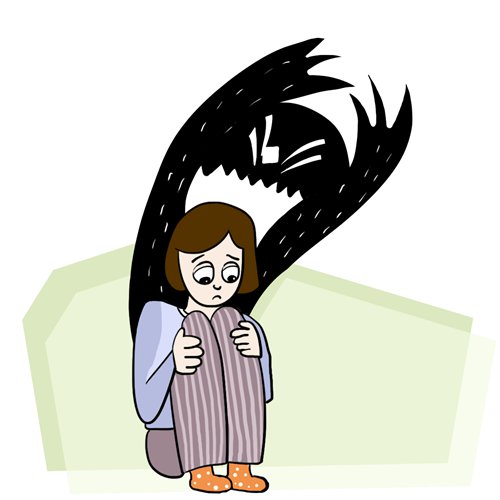METRO SHANGHAI / TWOCENTS
Psychological consulting urged to relieve Chinese teen stress

Illustration: Chen Xia/GT
Shanghai residents were quite concerned about a local teenage girl photographed by another subway passenger writing suicide notes on Friday.
The warmhearted passenger tried to communicate with her and offered her some snacks, but the girl simply murmured "I will study hard" before getting off the metro. The passenger uploaded the photos on her WeChat and urged the public to take action to find the girl. The girl's name was also revealed.
Such news always catches the hearts of Chinese parents. My friends discussed it in our private WeChat group. "Is it possible that she was just designing questions for her social survey?" "Why should a person write about suicide on public transport?" "Today's children really have too much pressure."
Based on previous cases where local authorities became involved in tracking down missing or mentally disturbed teenagers, we had enough reason to believe that this girl would soon be found.
Indeed, later that night, a WeChat account run by a media professional announced that the girl was safe and asked the public to stop spreading information about her. The announcement cited privacy issues and didn't reveal any other details. But reading between lines, we can presume that something must have happened between her parents.
This incident once again proves that Shanghai authorities are quick thinking when it comes to tackling local emergencies, even simple family disputes. But at the same time, it shows the public's need for more psychological services, especially for teenagers who have to grow up in these troubled times.
Extreme Chinese teens and even college students would commit suicide after failing an exam, which our modern society raises them to believe means everything in life. Even though we like to say that life is a marathon, we shouldn't focus too much on one thing or another.
When it comes to an individual student in class or an individual child in a family, teachers and parents just can't help saying "this exam will determine your whole future and fate. If you don't succeed, the consequences will be serious."
When I was a student, I heard such sentences every semester. But is it really the case? Of course not. Looking back and looking forward now in my forties, the truth is that academic performances play a small role in a person's career and future family life. Most top-scoring students go on to live average lives, and the same for low-scoring students.
At the same time, we have to admit that, based on China's huge population and limited educational resources, good education proves to be a pathway to a better career and brighter future. But the more adults realize and emphasize this point, the more academic pressure school children must face.
The competition is so fierce that there are always some students who get ousted in this game of life. At such a point, more caring and attention should be paid toward the weaker children, letting them know that they are not losers just because they failed a test. What parents and teachers of these kids should be doing is helping them narrow down their potential talents, so that they can shine in different stages.
And remember - some of the most successful people in our modern society are the ones who did poorly in school but wound up pursuing their true interests. Unfortunately, there are very few psychological professionals on campuses in China. Students do not have any opportunity to relieve their pressure.
And if these students encounter family disputes at the same time as they are dealing with school stuff, they are likely to feel helpless and hopeless. The case mentioned above could have been avoided if the girl's teachers had intervened earlier.
Luckily, a warmhearted passenger and concerned authorities realized something was wrong and intervened in a timely and appropriate way. But for future cases, Shanghai needs a better system to safeguard the mental health and well-being of our teenaged populous.
The opinions expressed in this article are the author's own and do not necessarily reflect the views of the Global Times.

